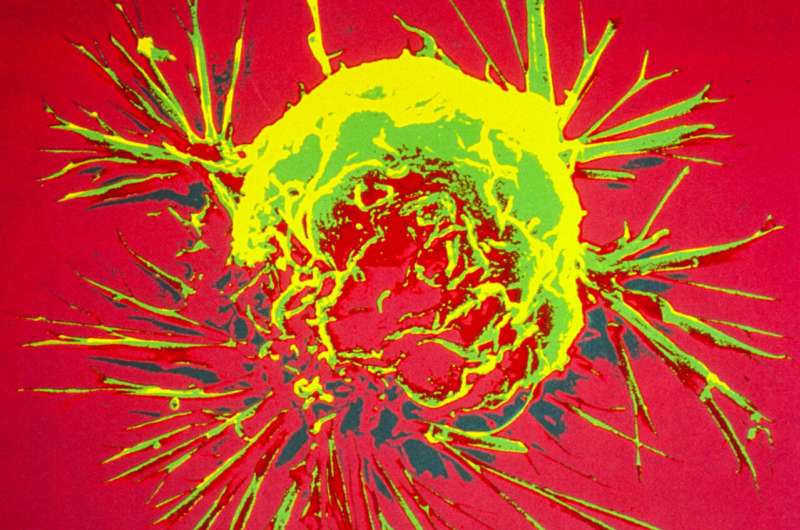
Researchers at Indiana University School of Medicine are learning more about ways to prevent serious side effects from chemotherapy used to treat breast cancer patients. The work done by the Schneider lab at the Vera Bradley Foundation Center for Breast Cancer Research at the IU Melvin and Bren Simon Comprehensive Cancer Center and led by Xi Wu, Ph.D. was recently published in Nature Communications.
Anthracyclines belong to a class of chemotherapy agents used to treat a variety of cancers and remain an important part of therapy for patients with high-risk breast cancer. While effective in improving cure rates, they can also cause serious heart damage, including heart failure, which is often irreversible.
“This is of crucial clinical importance for breast cancer patients as there are no proven strategies for prevention or interventions for cardiotoxicity,” said Wu, a former Vera Bradley Foundation Scholar who is the first author of the publication.
“In addition, there are no clinically indicated biomarkers to predict which patients are at risk of developing this side effect before starting an anthracycline-based treatment. In our publication, we provide molecular mechanisms by which a genetic variant previously identified by our group may lead to the clinical development of anthracycline-induced cardiotoxicity in patients.”
Previous research by the Schneider laboratory suggested that people may be more likely to experience serious heart damage, known as cardiotoxicity, after getting chemotherapy with anthracyclines based on their genetics, but there has not been enough information to determine which specific genes are independent of other cardiac risk factors. Wu and her colleagues used pluripotent stem cell-derived cardiomyocytes, which are the cells responsible for contracting the muscles of the heart, to show that an inherited genetic variant decreased the cell’s ability to contract heart muscles after being exposed to doxorubicin, an anthracycline chemotherapy drug.
“We know it is tricky to balance the toxicity needed to kill cancer cells, while also protecting the rest of a patient’s healthy body,” said Bryan P. Schneider, MD, Vera Bradley Professor of Oncology at IU School of Medicine, who is the senior author of the publication.
“These findings can help us begin to understand why some patients may be at increased risk for developing this devastating side effect, but more work is needed to design strategies to effectively prevent this from ever occurring. This exciting work is a major step in that direction.”
Their findings also uncovered an unexpected potential value for dexamethasone, a steroid pre-treatment routinely used to prevent nausea and allergic reactions. This drug, or perhaps other drugs that work in a similar way, may be a key strategy for minimizing cardiotoxicity as a side effect to chemotherapy.
More work is under way to further explore the optimal approach. Ultimately, the overarching goal of this work is to help doctors understand the risk level for certain patients before they use anthracycline-based therapy, and to also minimize the chance of heart failure for those at high risk.
Xi Wu et al, A non-coding GWAS variant impacts anthracycline-induced cardiotoxic phenotypes in human iPSC-derived cardiomyocytes, Nature Communications (2022). DOI: 10.1038/s41467-022-34917-y
Citation:
Researchers publish findings that could help prevent side effects for breast cancer patients (2022, December 20)
retrieved 20 December 2022
from https://medicalxpress.com/news/2022-12-publish-side-effects-breast-cancer.html
This document is subject to copyright. Apart from any fair dealing for the purpose of private study or research, no
part may be reproduced without the written permission. The content is provided for information purposes only.





